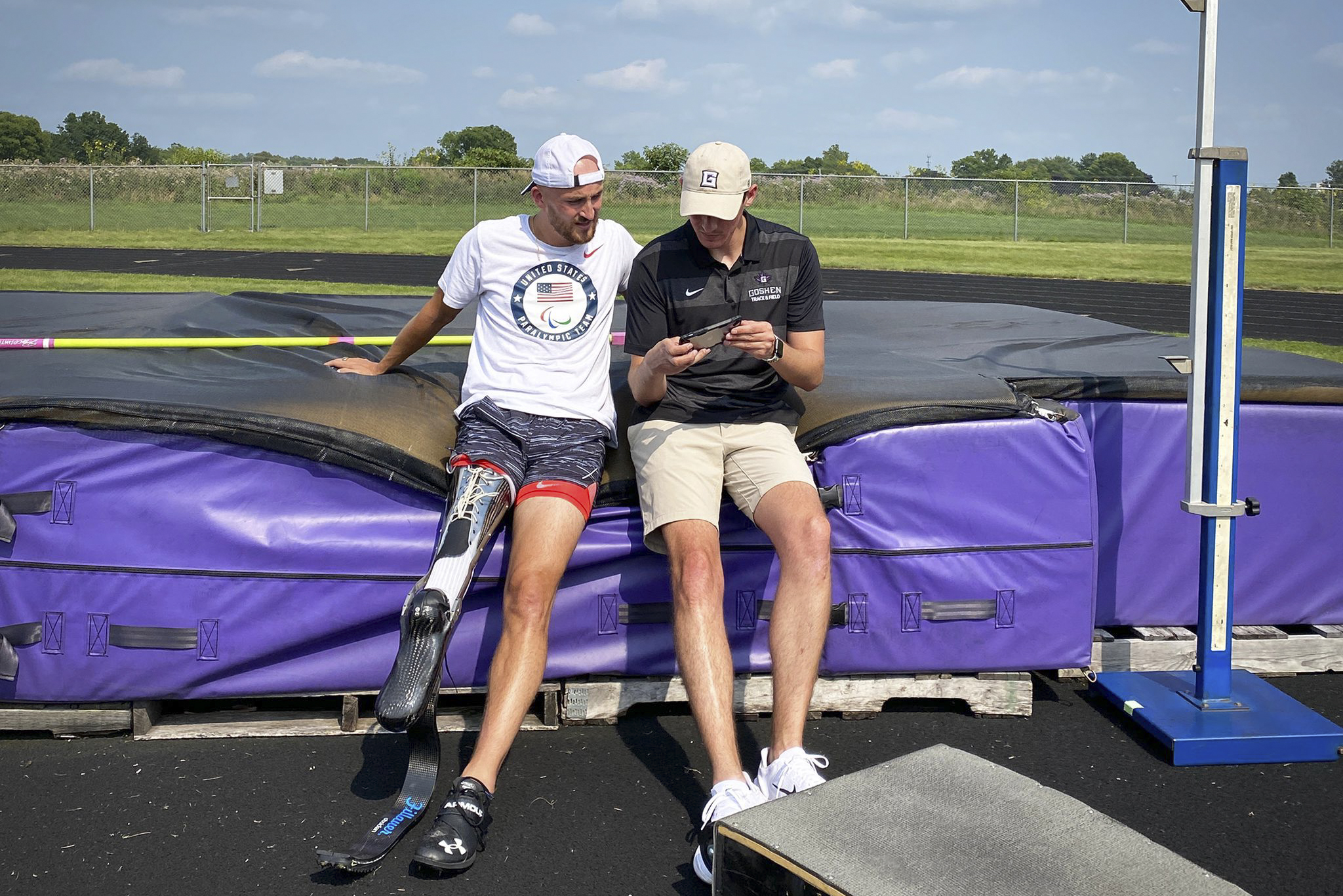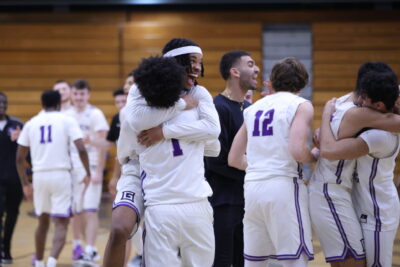Sam Grewe, a highly decorated high jumper, a three-time World Champion, a world record holder and, most recently, a Tokyo 2021 Paralympic gold medalist, is a familiar name to some at Goshen College.
“It's hard to spend hundreds of hours on the track over the years and have it all come down to one jump, but he was able to stay calm and clear that bar,”
— Kyle Mishler
“Sam had a family connection to former GC high jumper Don Williams,” Mishler said. “Sam started para track and field in 2015 and Don brought him to the indoor facility to practice, which is where we first met.”
Grewe contracted osteosarcoma, a form of bone cancer, at just 13 years old. This battle resulted in a pseudo-amputation procedure being performed on his right leg.
Mishler said, “I think that helped him mature at a much younger age than most of us, so his attitude and perspective on being able to be an athlete has always been positive.”
“Sam always has had a very high level of work ethic,” he said. “High jump is a very technical event so he’s always working on making adjustments and studying what he can improve on.”
Coming off of a sprained ankle at the beginning of the summer, Mishler spent a lot of time with Grewe strengthening and building Grewe’s jumping leg back up.
Grewe also had to face the challenge of adjusting to a whole new prosthetic leg. Mishler made sure Grewe practiced his approach to help him get used to how the leg felt and build consistency with the run up.
From June through the middle of July, the duo trained at the Goshen College track two to three times a week. After that time period, Grewe moved to attend medical school at the University of Michigan.
In the time leading up to the competition, Grewe was training in Michigan and would take videos of his practices in order for Mishler to analyze and go over with him.
Mishler said, “It really isn’t much different coaching Sam than any other high jumper I have had.”
“His prosthetic leg has some slight limitations in range of motion but he’s always been able to make adjustments in his approach for that and has never used it as an excuse,” he said. “I’d say that most practices I forget he has a disability, besides the times where there would be some mechanical issues with his leg that we would need to find some tools to help fix in the middle of training.”
At the commencement of the Tokyo 2021 Paralympics, Mishler knew Grewe was prepared but like any coach, he was nervous.
“I was on edge watching the competition all morning,” Mishler said. “He had missed an attempt at an early height which put him behind in placing early and there was a ton of rain in Tokyo during competition which can always cause issues.”
“When he finally cleared the height that won him gold I was so excited for him,” he said.
“It’s hard to spend hundreds of hours on the track over the years and have it all come down to one jump, but he was able to stay calm and clear that bar,” he said. “He deserves all the credit and recognition he receives and it’s exciting to see all the national attention he’s helped draw to adaptive sports with the success he’s had over the years.”

